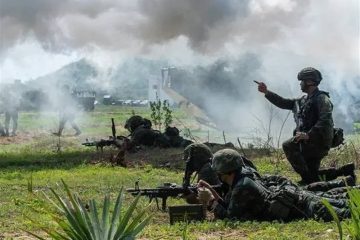The Impact of Anastasia Zakharova on International Diplomacy

Introduction
Anastasia Zakharova has recently emerged as a key figure in international diplomacy, gaining recognition for her innovative approaches and diplomatic engagements. In a world increasingly shaped by global challenges, her work addresses crucial issues such as climate change, security, and human rights. With the ability to navigate complex geopolitical landscapes, Zakharova’s contributions are significant, not just for her home country but for international relations as a whole.
Recent Developments
During the past year, Anastasia Zakharova has participated in several high-profile conferences and negotiations aimed at enhancing cooperation between nations. Notably, she represented her country at the United Nations Climate Change Conference, where she advocated for more robust commitments from nations to reduce carbon emissions. Her assertive stance, combined with her ability to build consensus, helped facilitate discussions that led to a renewed commitment to climate action among participating countries.
Furthermore, Zakharova has played a crucial role in bilateral relations between her country and the European Union, where her expertise in diplomacy has helped ease tensions arising from recent geopolitical disputes. By focusing on collaboration over confrontation, she has fostered dialogues aimed at mutual economic growth and security, illustrating the potential for diplomacy to resolve long-standing conflicts.
Significance and Future Prospects
The impact of Anastasia Zakharova extends beyond her immediate achievements. Her approach embodies a new generation of diplomats who prioritise dialogue and multilateralism over unilateral actions. This shift is particularly relevant in today’s rapidly changing political landscape, where the stakes of international relations are higher than ever.
As global challenges like the COVID-19 pandemic and climate change evolve, Zakharova’s work exemplifies the critical need for innovative solutions and international cooperation. Forecasts suggest that with her continued involvement on the global stage, she could spearhead initiatives that not only address current issues but also lay the groundwork for a more stable international order in the future.
Conclusion
In conclusion, Anastasia Zakharova is not just a rising star in diplomacy; she represents the potential for a diplomatic renaissance that could reshape international relations. Her work serves as an inspiration for young diplomats and leaders worldwide, showcasing the importance of collaboration, respect, and diplomacy in navigating global challenges. As she continues to influence international policy and foster peace, the significance of her contributions will undoubtedly resonate for years to come.









